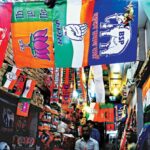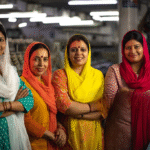Examining the Unique Challenges Faced by Young Politicians in India’s Democratic Landscape
Key Metrics:
- Youth Representation: Only 13% of Members of Parliament (MPs) in the 17th Lok Sabha are under 40, despite India’s youth comprising over 65% of the population.
- Political Dynasties: Over 30% of young politicians in India belong to political families, according to the Association for Democratic Reforms.
- Media Influence: Over 60% of Indians consume political news via social media, amplifying scrutiny on young leaders.
News Body
India’s vibrant democracy often positions young leaders as symbols of hope and progress. However, their journey is far from easy. While they bring fresh perspectives and dynamism to the political arena, young politicians frequently face heightened scrutiny from the public, media, and their peers. This scrutiny, amplified in the digital age, presents unique challenges that can overshadow their contributions and potential.
A Tough Start: High Expectations and Stereotypes
Young leaders in India often contend with preconceived notions that question their competence and maturity. Despite their qualifications and grassroots work, they are frequently viewed as inexperienced or lacking the gravitas of seasoned politicians.
Tejasvi Surya, a young Member of Parliament from Bengaluru, is a prime example. His rapid rise attracted significant attention, with critics questioning whether his achievements were due to merit or party backing. This skepticism often forces young politicians to prove themselves twice over—first as capable leaders and then as deserving of their position.
The Burden of Dynastic Politics
For young politicians from political families, the scrutiny is twofold. While their lineage opens doors, it also invites criticism. Leaders like Aaditya Thackeray in Maharashtra have faced allegations of nepotism, with detractors arguing that their success stems more from privilege than public service.
This constant spotlight on their background often diverts attention from their work and achievements. Critics are quick to label them as inheritors rather than innovators, making it challenging to build a distinct identity in the political space.
Social Media: A Double-Edged Sword
In today’s digital age, young politicians face unparalleled scrutiny on social media platforms. While tools like Twitter and Instagram allow leaders to connect with constituents and amplify their messages, they also expose them to public backlash and trolling.
Campaigns like #AccountabilityFirst and real-time fact-checking have made it easier for citizens to hold leaders accountable, but they also create an environment where every misstep is magnified. The rapid spread of misinformation further complicates the landscape, as young politicians often find themselves defending against unfounded allegations.
Challenges Unique to India’s Youth Leaders
- Balancing Tradition and Modernity: In a culturally diverse nation like India, young leaders must navigate traditional expectations while advocating for progressive policies.
- Limited Representation: The low percentage of young MPs reflects systemic barriers, including high campaign costs and lack of mentorship.
- Urban-Rural Divide: While urban youth leaders often leverage digital platforms effectively, rural leaders face challenges such as limited resources and connectivity.
Efforts to Bridge the Gap
Despite these challenges, efforts are underway to empower young leaders. Initiatives like Youth Parliaments and mentorship programs within political parties aim to provide platforms for emerging talent. Grassroots programs, particularly under the Panchayati Raj framework, encourage participation from rural youth.
Additionally, civic education initiatives under the National Education Policy (NEP) 2020 are designed to instill democratic values and leadership skills among young Indians.
Conclusion
While young politicians in India face intensified scrutiny, this attention underscores the public’s expectations for accountability and performance. However, excessive criticism can deter genuine talent from entering politics, reinforcing the dominance of traditional power structures.
To create a more inclusive political landscape, India must foster an environment where young leaders are evaluated on their work and vision rather than their age or lineage. By addressing systemic barriers and promoting meritocracy, the nation can ensure that its youthful energy translates into meaningful contributions to governance.
India’s future hinges on empowering its young politicians to lead without fear of undue scrutiny, balancing accountability with the encouragement they need to succeed.








